Europe digital editor
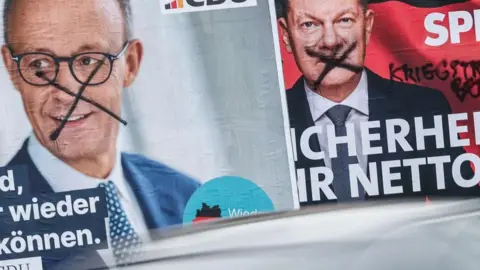 EPA-EFE
EPA-EFEGerman voters decide on 23 February who will run their next government, with Friedrich Merz’s conservative Christian Democrats favourite to become the biggest party in power.
Controlling immigration and reviving the European Union’s biggest economy are the main issues in this snap election, triggered by the collapse of centre-left Chancellor Olaf Scholz’s coalition late last year.
We assess who and what you need to know ahead of the vote for Germany’s next parliament, the Bundestag.
Why this vote matters
Europe’s biggest economy has contracted for two years in a row, hit by high energy prices and stiff Chinese competition. The next government will need to turn that around and revive German industry.
A series of deadly attacks has heightened pressure on the mainstream parties to reform immigration and asylum rules, and boosted support for the far-right Alternative for Germany. Attacks in Mannheim, Solingen, Magdeburg and Aschaffenburg are all in fresh in German minds.
Although no other party is prepared to let the Alternative for Germany (AfD) into government, if they come second and attract 20% of the vote, they could double their number of seats in the Bundestag.
Germans aged 18 and over will decide on their next parliament from 08:00-18:00 on 23 February.
There are five candidates for chancellor.
If the biggest party can secure a coalition deal with one or two other parties, the president will usually nominate its leader as chancellor. Then parliament will hold a secret ballot to decide.
Who are the five candidates for German chancellor?
The frontrunner in the race to run Germany is Friedrich Merz, whose Christian Democrats (CDU) are up to 10 points ahead in the polls. He was chosen as candidate for chancellor ahead of Markus Söder, the leader of their sister party in Bavaria the Christian Social Union.
Aged 69 and 198cm (6ft 6in) in height, Merz is a plain-talking, pro-business, social conservative who has spent years waiting in the wings.
Eclipsed in the CDU by Angela Merkel in 2002, he eventually left politics, served on the boards of investment banks and took up flying as an amateur pilot.
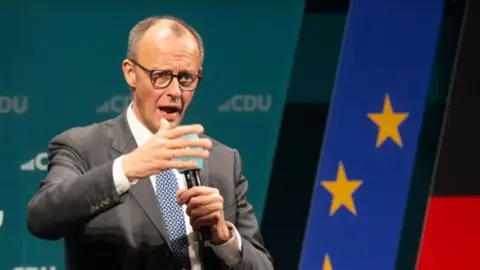 Getty Images
Getty ImagesMerz’s first two bids to win the CDU leadership failed, against Merkel in 2018 and then Armin Laschet who went on to lose the German election in 2021.
Merz then took over the CDU and is running under the slogan “A Germany we can be proud of again”.
He has promised to restrict immigration, cut taxes and slash €50bn in welfare spending in a bid to kickstart Germany’s faltering economy. He has also promised to bolster aid for Ukraine.
But he provoked a furious backlash ahead of the election when he sought to tighten immigration rules by relying on the votes of the far-right AfD, and ultimately failed.
Former CDU chancellor Angela Merkel said he was “wrong” to accept AfD votes and he has faced big protests. But he has won the backing of his party and succeeded in putting the years of his more centrist rival behind him.
 Getty Images
Getty ImagesOlaf Scholz has already served more than three years as chancellor, at the head of an unpopular coalition that fell apart in a row over loosening Germany’s strict debt rules.
His government struggled from the start, largely because of the effect of Russia’s full-scale war in Ukraine on Germany’s economy.
Germany became Ukraine’s biggest aid-provider in Europe. Scholz spoke of a Zeitenwende (turning point) in beefing up German defence policy and military spending – but he was accused of acting too slowly or too late.
Many in his own Social Democrat party (SPD) believed he should have allowed party colleague Boris Pistorius to run for chancellor instead.
However, the party has joined conservatives in the past and although Scholz said he could no longer trust Merz, the Social Democrats remain potential partners.
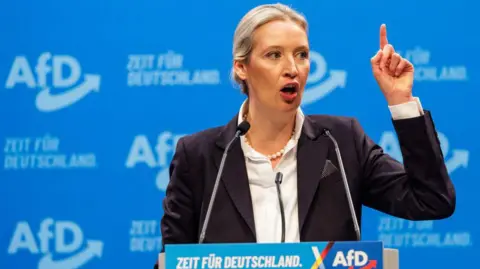 JENS SCHLUETER/AFP
JENS SCHLUETER/AFPAlice Weidel, 46, is the AfD first candidate for chancellor since the party was created in 2013.
She has little chance of winning power, but she has become popular with young voters on TikTok and her party has set its sights on four years’ time.
Co-led by Tino Chrupalla, the AfD has already secured one recent victory, in September’s state election in Thuringia in the east.
Weidel enjoys the support of Elon Musk, who said the ex-Goldman Sachs analyst could not be right wing extremist as she “has a same-sex partner from Sri Lanka”.
And yet she has backed the mass deportation of migrants, embracing the highly controversial term “remigration”, and she wants to end sanctions on Russia.
Party supporters have cheered her with the slogan Alice für Deutschland (Alice for Germany), which sounds similar to a banned Nazi slogan Alles für Deutschland.
Robert Habeck’s Greens played a key role in the Scholz government as vice-chancellor and economy minister.
But one of his flagship policies, phasing out fossil-fuel heating systems in Germany, had to be watered down and led to a dive in the government’s poll ratings.
Habeck, 55, has taken a strong line on aid for Ukraine, and he has forcefully criticised Friedrich Merz for relying on votes from the AfD in parliament.
Relations with Friedrich Merz are awkward, after he accused the CDU leader of disqualifying himself as chancellor, but the Greens could still return to government.
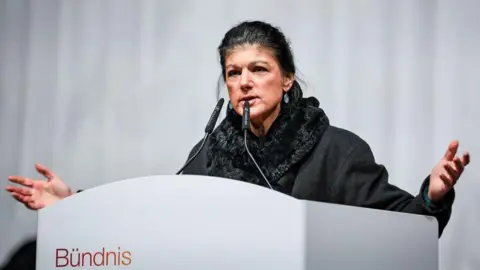 Leonhard Simon/Getty Images
Leonhard Simon/Getty ImagesLike Alice Weidel’s AfD, Sahra Wagenknecht and her BSW party back closer relations with Russia and has built a strong support base in eastern Germany.
Wagenknecht calls her politics “left conservativism” and presents herself as an alternative to the AfD, backing strict limits on asylum and immigration.
She shares the AfD’s opposition to German military support for Ukraine and has been accused of parroting Kremlin narratives on the war.
But she may struggle to reach the 5% national threshold to get into parliament.
How does voting work?
Elections to the Bundestag usually take place every four years – this one had been due on 28 September 2025 but was brought forward because of the collapse of the Scholz government.
Over-18s get two votes.
One is to elect members of the Bundestag directly in 299 constituencies. The second is to choose a political party in one of the 16 states that you live in.
Any party that wins 5% of that second vote is allowed to enter the Bundestag, and they then use their state lists to pick their MPs.
Complex voting rules that meant the outgoing parliament had 733 seats have now been abolished. That means Germany’s next Bundestag will have a total of 630 seats – a reduction of more than 100 seats.
However, one of the old rules will remain. Any party that fails to poll 5% of the vote can still get in, if they win in three of the 299 constituencies.
Which parties could form Germany’s next government?
The conservative CDU and CSU parties are favourite to win the most seats, but by ruling out a coalition with the AfD Merz has narrowed their options of potential partners in government.
That makes a deal most likely with either or both the SPD and the Greens.
Many in the SPD are reluctant to work with Merz after the migration row, but a so-called grand coalition of the two parties is considered possible.

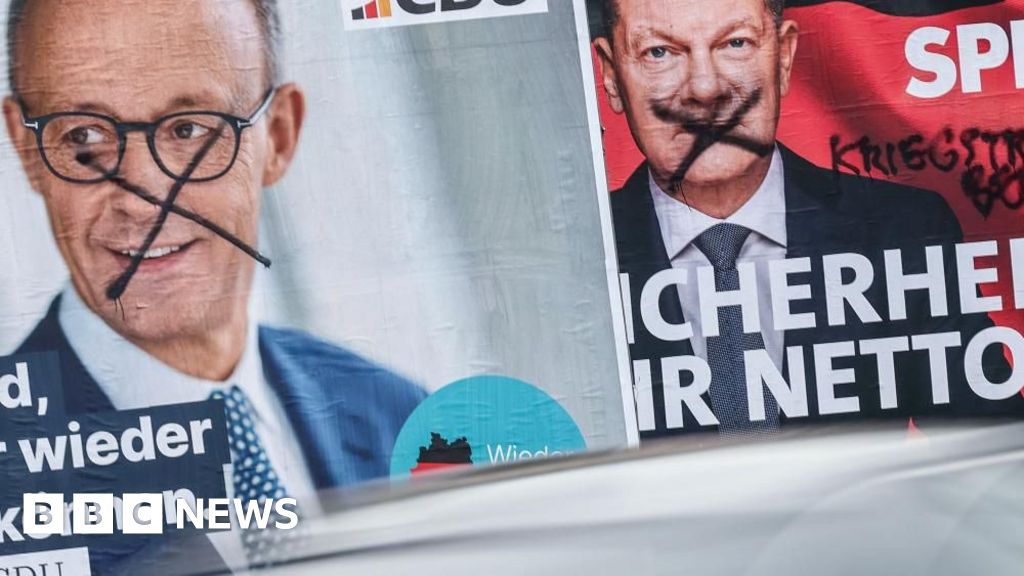

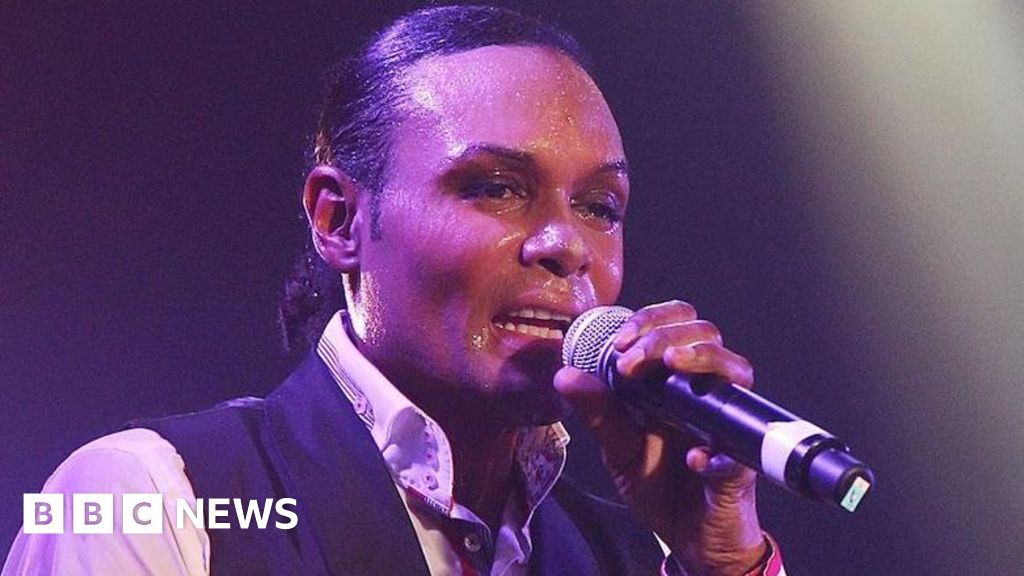

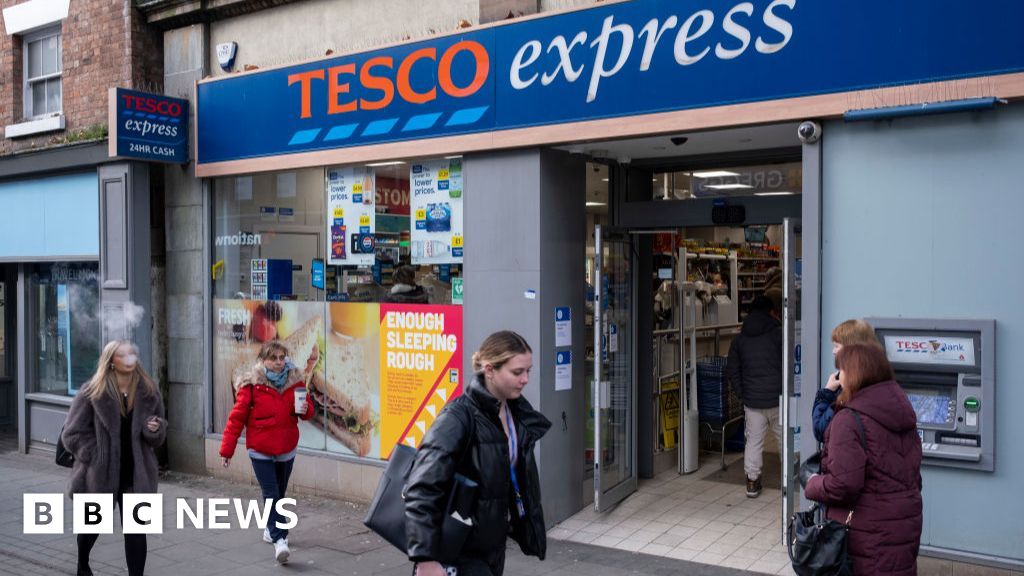
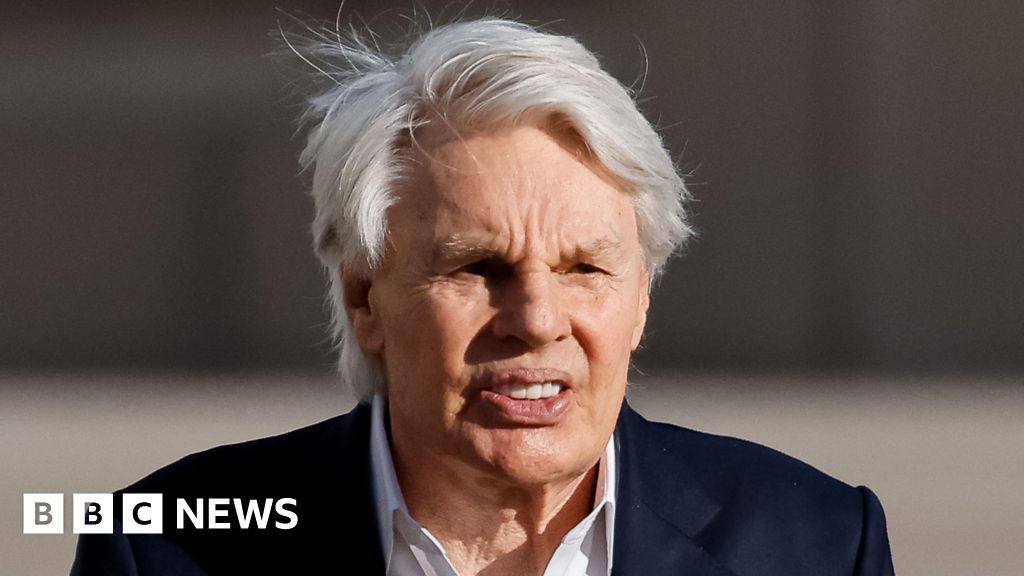

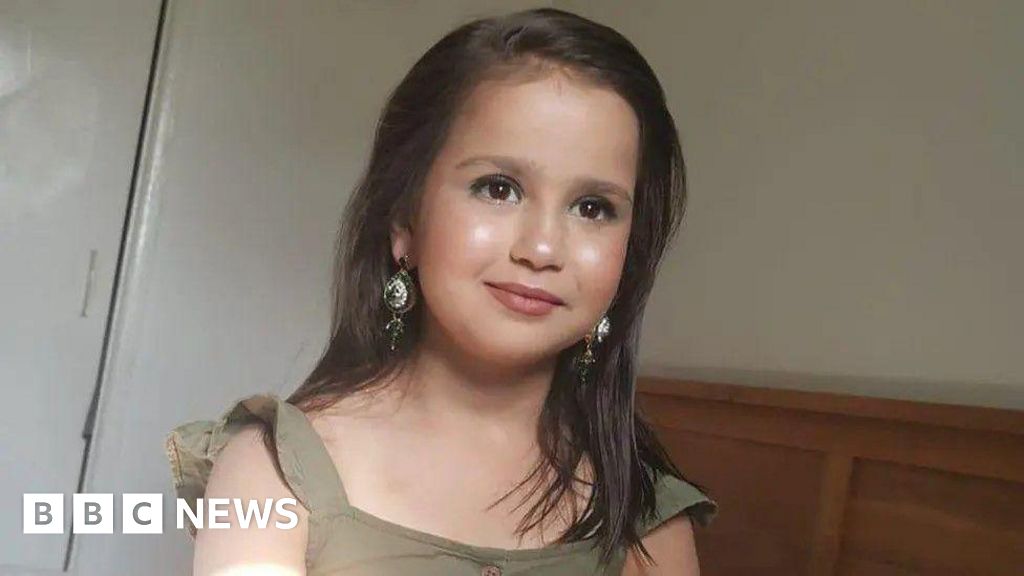


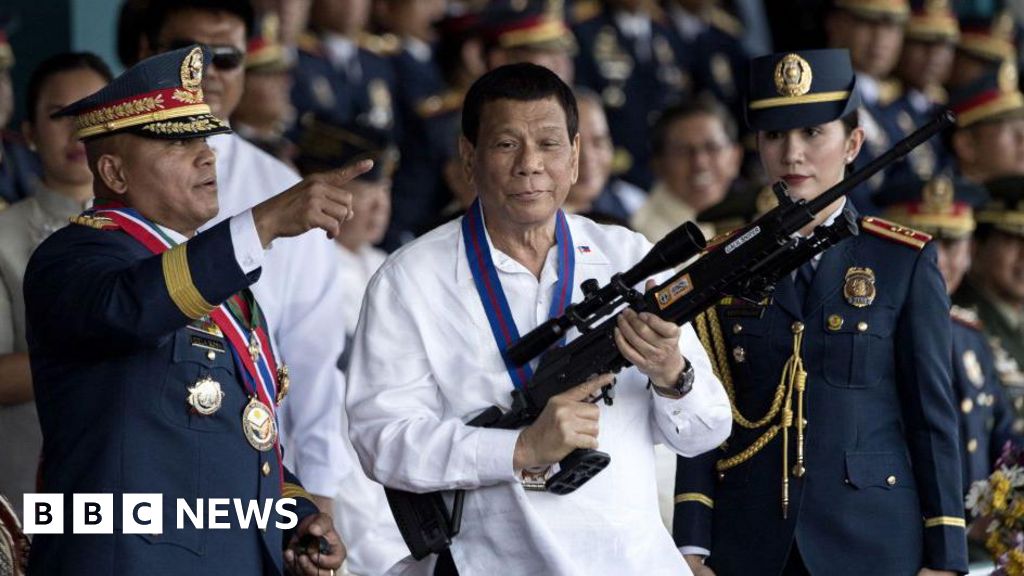
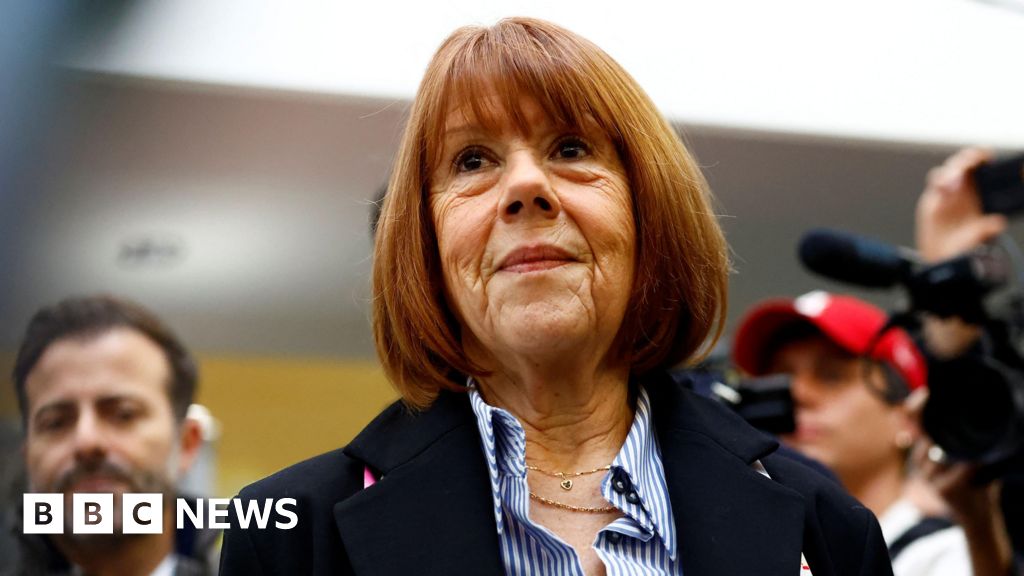




Leave a Reply